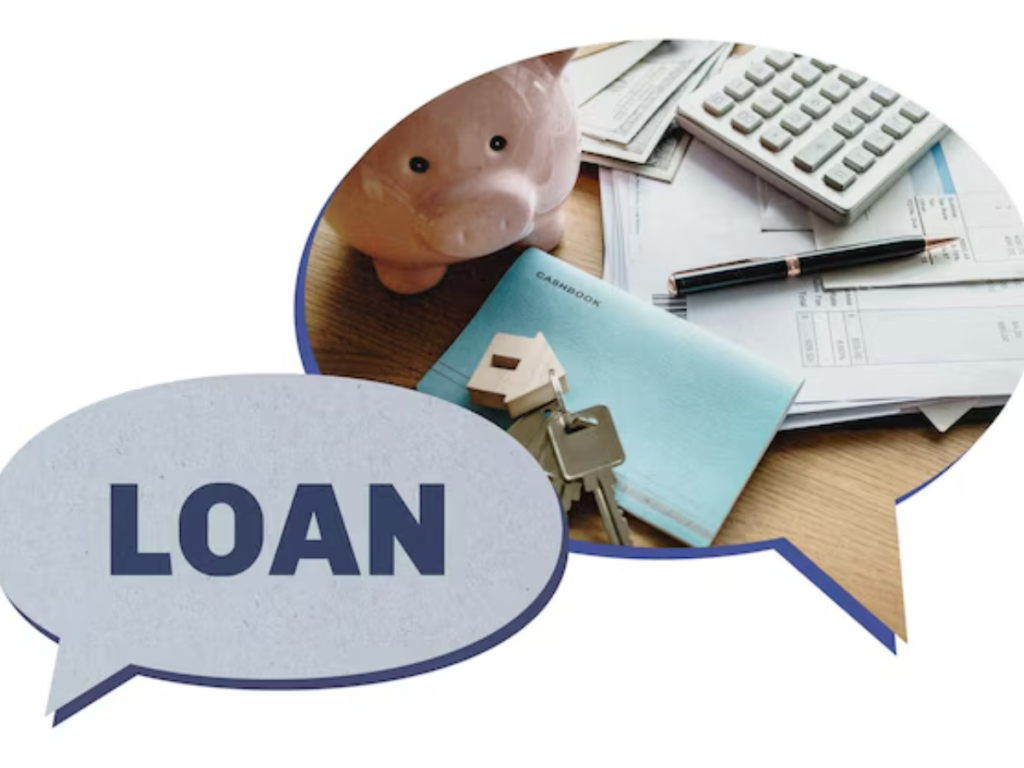Introduction
Loans are essential to accomplish economic objectives like buying a home funding higher education or growing a business But non-payment of loans on time can result in default and that carries grave consequences such as monetary penalties legal action and a negative credit rating Defaults on loans can complicate the process of taking credit in the future and could even affect opportunities at work or for housing applications
In order to prevent loan defaults and have a good credit reputation it is necessary to cultivate good financial practices manage the debt in a sound manner and remain proactive towards repayments This step-by-step guide offers practical tips to enable borrowers to remain compliant with their loan commitments while ensuring a good credit record
Understanding Loan Defaults and Their Consequences
Default on loan occurs when the borrower defaults in payments as stipulated in the agreed loan conditions
The duration for default varies based on the lender and type of loan For instance missing a couple of payments leads to a delinquent position while failing to pay for many months can constitute default
Consequences of Loan Default
Negative effect on credit score Defaulting on a loan reduces credit scores considerably making it more difficult to obtain credit cards mortgages or personal loans in the future
Increased interest rates Defaulted borrowers are considered high risk by lenders resulting in increased interest rates on subsequent loans and financial products
Legal action and wage garnishment Lenders in some instances can sue for legal action which can lead to wage garnishment seizure of assets or a court judgment
Difficulty finding employment or housing Landlords and some employers screen for credit reports prior to accepting rental applications or making job offers Bad credit can impact these opportunities unfavorably
Debt collection attempts Defaulted loans can be transferred to collection agencies which can lead to constant calls emails and letters insisting on repayment
Collateral loss For secured loans like mortgages or car loans defaulting can result in foreclosure or repossessing the property
Given these severe outcomes it is crucial to adopt proactive measures to prevent loan default and ensure financial stability
Realistic Tactics to Prevent Defaults on Loans
Lend Only What You Can Repay
Prior to obtaining a loan evaluate your fiscal condition and figure out if you can manage to pay the installments Consider income recurring expenses and other financial liabilities Borrowing as much as you can afford averts financial burden and minimizes the chances of defaulting
Develop an Elaborate Budget and Adhere to It
Budgeting is a very important process when it comes to loan repayments Allocate the cash for vital costs like rent grocery bills utility bills and loan instalments Cut areas where you might save discretionary expenditures like eating outside or leisure time to ensure sufficient money for repayments of the debt
Set Up Automatic Payments
Most lenders provide the convenience of arranging automatic payments which directly debit loan repayments from your bank account on the due date This ensures timely payment of payments eliminating the likelihood of late fees and missed payments that hurt credit scores
Talk to Lenders in Event of Financial Distress
If you have a financial setback like loss of a job or illness and are unable to make a payment notify your lender immediately Several financial institutions have hardship programs deferment plans or loan modifications that can assist borrowers in handling temporary financial hardship
Build an Emergency Fund
Having an emergency fund can avoid financial strain in unforeseen circumstances like medical expenses home repairs or unexpected job loss A savings buffer of three to six months’ worth of living costs can enable you to keep making loan payments in difficult times
Pay More Than the Minimum Payment When Possible
If you have surplus funds try to pay more than the minimum amount needed This reduces the loan amount early decreases total interest paid and shortens the time to repay
Look at Loan Refinancing or Consolidation
If you are finding it difficult to pay for high interest rates or multiple loan installments consolidating or refinancing your loans can prove to be a viable choice Refinancing means taking an old loan and paying it off with a new loan with a lower rate that can lower the monthly installments Loan consolidation is when several different loans are put together in one loan making the payment easy
Check Your Credit Report Often
Reviewing your credit report regularly makes you aware of your credit standing and catch any errors that could affect your score Most financial institutions provide free checks on the credit report Keeping track of your report enables you to take action against errors found and know how lenders perceive your creditworthiness
Avoid Taking on Unnecessary Debt
Although being able to use credit may be a plus taking on too much debt may result in financial stress Before borrowing again on a new loan or credit card ask yourself if you really need to and if you can afford one more monthly payment without the chance of default
Seek Financial Counseling If Needed
If you’re having trouble keeping up with your loans try turning to a nonprofit credit counseling service These services provide financial counseling and can assist you in developing a debt repayment schedule Some organizations even negotiate with lenders on your behalf to obtain better interest rates or longer repayment schedules
The Benefits of Maintaining a Good Credit Standing
Good credit history provides many opportunities to access finances and facilitates easy handling of future loans Keeping a good credit score provides the following benefits
Easy loan sanction Loan applications for good payers are more easily sanctioned by lenders
Lower interest rates A good credit score allows borrowers to receive lower interest rates on mortgages auto loans and credit cards which saves money in the long run
Higher credit limits Banks and other financial institutions grant higher borrowing amounts to people with good credit which makes it easy to get funds when needed
Improved rental and employment opportunities Some employers and landlords use credit history when approving rent applications or employing job applicants A positive credit score enhances one’s chances of getting housing and employment prospects
Access to premium financial products Banks provide improved credit cards mortgages and personal loan facilities with improved terms to high-credit-scoring individuals
Peace of mind You can plan ahead for future financial objectives without worry about high debt or poor credit limitations
Maintaining Motivation to Deal with Loans Appropriately
Repayment of the loan can be a long term affair and remaining motivated is of the essence Here are some steps to keep motivated about your money objectives
Set realistic and achievable goals Clearly set your loan repayment goals like clearing a specific loan within a predetermined period of time
Utilize visual tracking tools Track your loan balances and payments using a spreadsheet or money management app Watching debt fall over the months can help motivate you
Get an accountability buddy Share your intentions with a loyal friend or member of family to motivate you towards keeping pace with repayments.
Reward for milestone achievements Compress small targets such as settlement of a loan and reward yourself using a reasonably affordable treat such as a home movie night or cooking a dinner in the home
Remind yourself of the larger picture Consider the long term advantages of being debt free such as financial freedom lower stress and greater potential for future investments
The Long-Term Consequences of Loan Defaults on Financial Wellbeing
Loan defaults have lasting impacts that may be far-reaching beyond the short-term financial challenges. Identifying these effects can encourage borrowers to be motivated against defaulting and proactive in maintaining financial wellbeing.
Hardship in Obtaining Future Credit
Loan creditors evaluate a credit history of borrowers prior to accepting loans or cards. A loan default remains within credit reports for many years reducing the chances to obtain new credits or lines. Even if approval is granted it can be granted with tougher conditions like increased costs of borrowing.
Increased Borrowing Costs
A low credit score as a result of default is an indication of a greater risk to lenders which usually translates to higher interest charges. This makes future loans more expensive in terms of interest payment making it costlier to borrow money for major expenses such as a home car or education.
Restricted Access to Home Opportunities
Most landlords review credit reports prior to approving rental application. A loan default history can result in a denied application or ask the borrower to post a higher security deposit. In tight rental markets a bad credit score can make it much more difficult to get a good property.
Negative Impact on Employment Opportunities
Certain employers especially in the financial industry perform credit checks prior to recruiting applicants. Default on loans could be a reason for concern over financial responsibility and reliability that would affect hiring decisions particularly for those jobs involving dealing with money or financial documents.
Higher Insurance Premiums
Certain insurance providers employ credit history in the calculation of insurance premiums. Defaulting borrowers can expect higher rates for car home or life insurance policies since insurers view them as riskier individuals.
Legal Consequences and Wage Garnishment
In extreme instances lenders or collection agencies can resort to taking legal action against loan-defaulting borrowers. This results in court judgments and wage garnishment whereby part of the borrower’s paycheck is deducted to pay the debt. Legal repercussions of this sort can complicate recovery further from financial setbacks.
Strategies to Rebuild Credit After a Loan Default
Even if a borrower has previously defaulted on a loan, recovery and rebuilding of credit is possible with time. These steps may enhance credit status and restore financial wellness.
Final Thoughts
Preventing loan defaults and having a good credit reputation involves planning careful borrowing and steady financial discipline Through budgeting on-time payments emergency fund savings and seeking assistance when necessary borrowers can shield themselves from the adverse effects of default and build a good credit record
A healthy credit rating not only enhances access to loans at reasonable interest rates but also increases overall financial security Through these methods individuals can attain financial stability and strive for long term financial success

